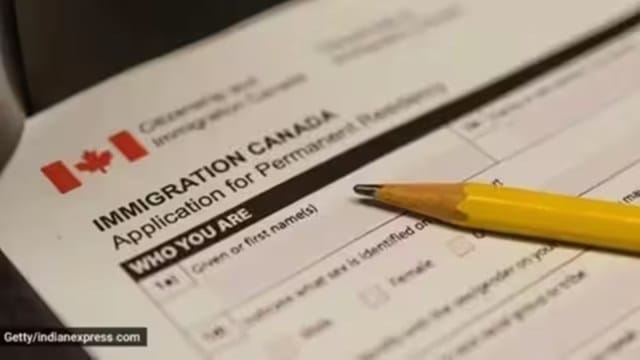Canada for students in the post-Trudeau era: How it will impact visa policies and Indian students
Experts say Canada will continue to be an attractive destination for serious students
 In 2024, up until August, 137,445 Indian students were issued study permits out of 374,060 international students, making up 36.7% of the cohort. (Representative image)
In 2024, up until August, 137,445 Indian students were issued study permits out of 374,060 international students, making up 36.7% of the cohort. (Representative image)The resignation of Justin Trudeau has sparked discussions among immigration experts about the future of international students in Canada. Many experts reflect on Trudeau’s tenure (2015–2023) as a golden era for international students, particularly Indians, who benefited significantly from liberal immigration policies.
According to data from Immigration, Refugees, and Citizenship Canada (IRCC), approximately 1.3 million Indian students received study permits from 2015 to 2024. In 2015, only 31,920 Indian students held study permits in Canada, accounting for 14.5% of the total international student population. By 2023, this number had surged to 278,250, representing 40.7% of the total international student population of 682,060.
In 2024, up until August, 137,445 Indian students were issued study permits out of 374,060 international students, making up 36.7% of the cohort. This marks a 4% decline from 2023, attributed to new measures introduced by the Canadian government, such as capping the number of international students and tightening study permit processes. These changes have slowed visa processing times and tempered the enthusiasm of some aspirants.
Despite these adjustments, Canada remains home to approximately 4.26 lakh Indian students, including new arrivals and those continuing their studies.
Tirath Singh, an immigration consultant at Jalandhar-based Pinnacle Immigration, believes the changes in visa policies are not inherently negative. “The recent changes aim to attract serious students who come to study and work in fields that Canada requires. For those with genuine intentions, these policies provide stability and long-term opportunities,” he said. Singh also noted that Canada continues to rely heavily on migrants to sustain its economy due to its stagnant population growth.
Singh acknowledged that Trudeau’s government provided vast opportunities for students, visitors, and parents of students to settle in Canada. However, he defended the recent restrictions, stating, “There is no harm in focusing on serious students. It ensures better integration into the job market, facilitates post-graduation work permits (PGWPs), and eases the path to permanent residency (PR). Non-serious students often struggle with these aspects.”
With the next federal election due in late 2025, another consultant, Gurpreet Singh, expressed concerns that a potential Conservative government could impose even stricter immigration policies. However, he emphasized that Canada’s need for skilled workers and its reliance on immigration are unlikely to change.
Gurpreet Singh also highlighted the role of some dubious Canadian colleges and misleading practices by agents in creating challenges for students in the past. “Many colleges and agents misled students, making them believe in shortcuts. The new policies discourage such practices and support students who genuinely intend to study and contribute.”
He agreed that Canada remains an attractive destination for Indian students, who will understand the positive impact of the new policies in the coming years. However, the focus has shifted towards quality over quantity, ensuring that students align with Canada’s labour market needs. Singh added, “For serious students, Canada is as good as it was before. The opportunities are immense for those willing to work hard and adapt.”
Saurabh Arora, founder and CEO of University Living, which deals with study abroad opportunities, said, “Justin Trudeau’s resignation marks a significant turning point in Canadian politics, with potential implications for the large community of Indian students in Canada. While the leadership transition introduces an element of uncertainty, it also presents an opportunity for positive change. If the new leadership prioritizes education as a bridge for strengthening Canada-India relations, it could open doors for even greater collaboration, ensuring that international students continue to view Canada as a welcoming and supportive environment for their academic and professional aspirations.”
“While Trudeau’s policies created a favourable environment for international students, the recent changes underline Canada’s evolving approach to immigration and education. For Indian students, the message is clear: a focused and genuine approach will continue to open doors in Canada,” said Tirath Singh.







